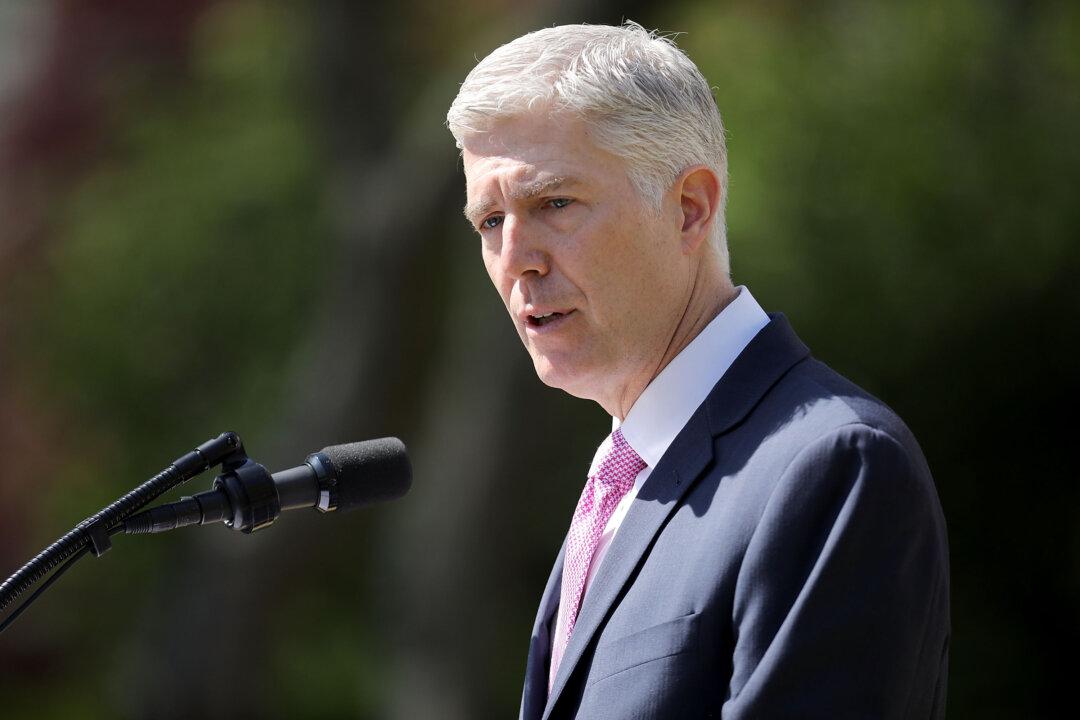Supreme Court Justice Neil Gorsuch has issued a sharp critique of the growing practice of federal judges ruling beyond the scope of a particular case, in some court orders known as nationwide injunctions.
On Jan. 27, the top court voted 5–4 to lift a pair of nationwide injunctions that blocked the Trump administration from enforcing its “public charge” rule that restricted new immigrants from receiving green cards if the individual is deemed likely to become primarily dependent on the government for assistance such as food stamps or Medicaid.




